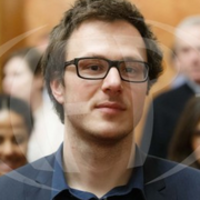Group 2
Comparative Group 2: National qualification frameworks in lifelong learning perspective
Qualifications frameworks ∙ learning outcomes ∙ transnational organisations
As a result of globalisation and Europeanisation processes, educational policy has internationalised and become a product of transnational organisations, i.e. the EU, the OECD, UNESCO, the World Bank and the IMF. These organisations can be understood as new empires of knowledge in education which strive to promote precisely defined norms, values and discourses in the field of education and adult education, as well as to transform education policy and education systems around the globe in preferable direction although they mainly work through the mechanisms of “soft power” as their formal competences are limited.
The establishment of national qualifications frameworks (NQFs) in Europe and around the globe can be seen as one of these influences of transnational organisations which support the shift towards lifelong learning (LLL), the outcome dimension of learning and learning outcomes based curricula and qualifications. The concept of learning outcomes and NQFs appeared in European policy documents around 2004 – resulting in the European qualifications framework for lifelong learning (EQF) recommendations in 2008 – and have since been presented as a ‘magic bullet’ that should resolve many educational problems; learning outcomes and NQFs are supposed to not only solve the problems of transparency, comparability, quality and efficiency of learning and qualifications, they should also facilitate second chances and a learner-centred approach to education and bridge the gap between education, the economy and support mechanisms for validation of non-formal and informal learning.
However, as the concept of learning outcomes used in European education policy is an extremely loose, i.e. a political construct without clear definition, which can be interpreted in several ways, and different types of NQFs developed around the globe, this comparative group will explore different roles NQFs and learning outcomes play in national policy context, how they influence curricula design, qualifications and lifelong learning national initiatives.
Comparative research question
1. What types of qualifications frameworks are dominant in different national contexts?
2. How are they linked to lifelong learning policies?
3. What role do learning outcomes play in adult education?
Context of comparison
The group will focus its research on the influence of transnational organisations’ policies on the design and implementation on national qualifications frameworks (national EQF referencing reports, national regulations/laws, international – Cedefop, ETF, Unesco – global inventories on NQFs). It will also explore how NQFs influence adult education, particularly adult educational and training programmes (shift to learning outcomes based curricula and qualifications) and lifelong learning (national/regional) policies.
Categories of comparison
(selection for the transnational essay is based on participants research interests)
National qualifications frameworks governance: influence of transnational organisation’s regional or meta frameworks (i.e. European qualifications framework for lifelong learning – EQF, The Association of Southeast Asian Nations qualifications reference framework – AQRF) on national qualifications frameworks (NQFs), i.e. context, purpose, scope, structure and level descriptors of NQFs, financial support.
National qualifications frameworks policy discourses: the role national qualifications frameworks and learning outcomes play in fostering lifelong learning policies, i.e. greater employability and worker mobility, better comparability and recognition of qualifications, supporting quality assurance, credit systems and systems for the validation of non-formal and informal learning.
Qualifications and curricula design: impact of national qualifications frameworks and learning outcomes on the design of adult education and training programmes and qualifications, i.e. shift to learning outcomes based qualifications.
Good practices
Given that NQFs in Europe and developing countries around the globe are a recent development and can be best described as “a work in progress”, it is too early to reach conclusions about their long-term (negative or positive) effects and best practices. However, when studying qualifications frameworks practitioners should not only focus on qualifications frameworks as independent phenomena, but should consider wider context in which they are embedded in, i.e. relationships between qualifications, curriculum, educational institutions and work.
References
Allais, S. (2017). What does it mean to conduct research into qualifications frameworks? Journal of Education and Work, 30(7), 768–776.
Elken, M. (2015). Developing policy instruments for education in the EU: The European qualifications framework for lifelong learning. International Journal of Lifelong Education, 34(6), 710–726.
Raffe, D. (2013). What is the evidence for the impact of national qualifications frameworks? Comparative Education, 42(2), 143–162.

Prof. Borut Mikulec, University of Ljubljana, Slovenia
Dr. Borut Mikulec is assistant professor of adult and continuing education at the Department of Educational Sciences at the University of Ljubljana. His research areas include the role of transnational organisations in education policy, international and comparative adult education, vocational education and training, recognition of non-formal and informal learning and the policy of lifelong learning.

Dubravka Mihajlovic, M.A., University of Belgrade, Serbia
Dubravka Mihajlovic, M.A. is a PhD student at the Department for Andragogy, Faculty of Philosophy, University of Belgrade, where she also works as a research and teaching assistant and she is engaged in the following courses: Vocational education of adults, Analysis of needs for skills and training, Quality of education, Career guidance and development. She is actively engaged in training of teachers and in the activities regarding Publicly recognized organizer of AE activities in Serbia. Her research emphasis are on career guidance and counselling of adults and especially on analyzing the nature, role and place of education within career guidance and counselling.


